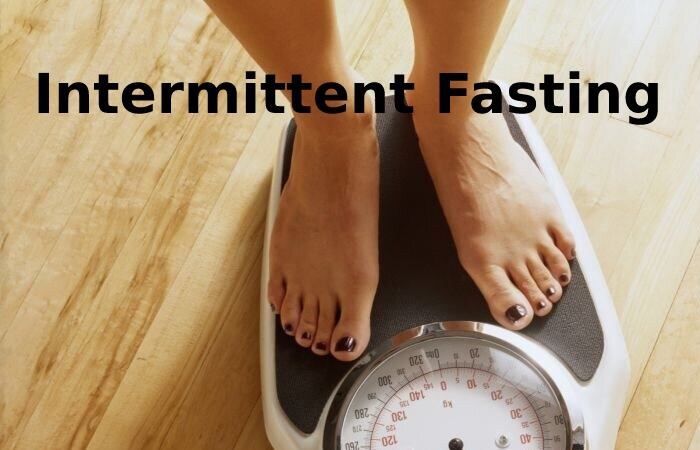Intermittent Fasting – Surrounded by the current dietary trends is intermittent fasting. Extra than a diet, this new way of eating would have several health benefits. Fasting to lose weight has even converted the new slimming secret. This article studies the real benefits of fasting and practices it with a typical day fasting menu.
What is Intermittent Fasting?
This type of diet contains alternating between periods of fasting of fluctuating lengths and periods of food intake. Much further flexible and accessible than strict fasting, which does not permit any food intake, intermittent fasting allows you to enjoy the same health benefits. Here are different ways to practice intermittent fasting: partial fasting, 5: 2 method, fasting, etc.
The Health Benefits of Intermittent Fasting
Fasting would have various benefits for the body, especially in our society where overeating and junk food are two mutual facts.
- Decreases insulin-making and the storage of fat and sugar in the body
- Promotes cell regeneration
- Stimulates the destocking of fats
- Better control of food sensations
- Stimulates the secretion of growth hormone
- Improves physical and intellectual presentation and decreases recovery time
- Prevents overweight and associated pathologies: cardiovascular diseases, diabetes, etc.
- Allows the cleansing of the organism and stimulates the autophagy or self-cleaning function of the organism by its cells
- Reduces cell oxidation plus premature aging of cells
Fasting to Lose Weight: The Opinion of a Dietician
As mentioned above, the health benefits of fasting are numerous and very interesting. However, in the context of weight loss, you have to be careful. Indeed, an unsupervised and poorly conducted intermittent fast can cause more damage than benefits. Fatigue, frustration, food compulsions, cravings, etc., are all adverse effects that can strain the body.
To avoid them, it is essential to seek medical advice before starting the fast and be accompanied by food professionals. Moreover, keep in mind that fasting is not a diet but a way of eating. Losing weight doesn’t have to be the only motivation – it can frequently make things complicated and make mistakes.
The chief mistakes to avoid for a successful intermittent fasting
Fasting to lose weight is not as easy as it seems. Indeed, some prevalent errors can ruin your efforts and make intermittent fasting counterproductive.
Here is a list of the major mistakes to avoid for a successful fast.
Not drinking enough water
The elimination of metabolic wastes and toxins requires sufficient hydration. This hydration must be even more critical during intermittent fasting for the body to support the fasting periods and continue to function optimally. When you fast, your thirst is often much less. Therefore, it is commanding to pay attention to this point and drink at least 2 liters of water per day, spreading the intake over the day.
Eat twice as much during times of food intake
When fasting, it can be challenging to maintain a balanced diet during periods of food intake. Indeed, it is tempting to pounce on food, eat in larger quantities, and turn to pleasure foods. Now, this is a big mistake. To reap the health benefits of fasting, the quality of the diet during periods of food intake is as important as the fasting periods themselves. Thus, promoting meals rich in plants, whole grains, lean proteins, and essential fatty acids.
Set goals that are too tough to achieve
Fasting is a complicated exercise, and it recommends taking it gradually and listening to your body before anything else to avoid missteps. If this is your first time fast, try to set goals for yourself in stages. Start by bringing your mealtime forward in the evening, move your breakfast time back a little in the morning, etc. This way, you will slowly increase the fasting time without rushing your body.
Firm to lose weight only
Intermittent fasting is new of a lifestyle than a diet, and its persistence is not weight loss, but it does help. Summarizing fasting to that one goal line can make it more complicated. That is because you risk missing out on all the further benefits of fasting (physiological and psychological) and giving up further quickly. Similarly, it can be frustrating and guilty in a dietary gap or weight loss considered too slow.
A typical day with a special fasting menu
To help you form a practical day menu, here is an example of a particular fasting food plan. Fasting is the greatest well-known and widely used method of intermittent fasting, and this method consists of alternating an 8-hour food intake period with a 16 hour fasting period. Here, the day’s last meal is therefore eaten before 8 p.m., and the first meal of the day is that of the next day at noon.
Lunch (at noon)
Raw salad with walnut oil
150 to 200 g of meat, or substitute
200 g green vegetables
200 g of cooked whole starches
30 g of cheese
Seasonal fruit
Snack (at 4 p.m.)
Tea or infusion
Honey yogurt
Handful of oilseeds
40g red berry muesli
Dinner (before 8 p.m.)
250 g of vegetable soup
200 g of cooked starches
150 g of fish or salmon, white cheese, also olive oil sauce
Homemade fruit compote
Two squares of dark chocolate
To better suit your habits, it is possible to postpone dinner time and lunchtime. The important thing is to keep a fasting period of 16 hours, alternating with a food intake period of 8 hours.


